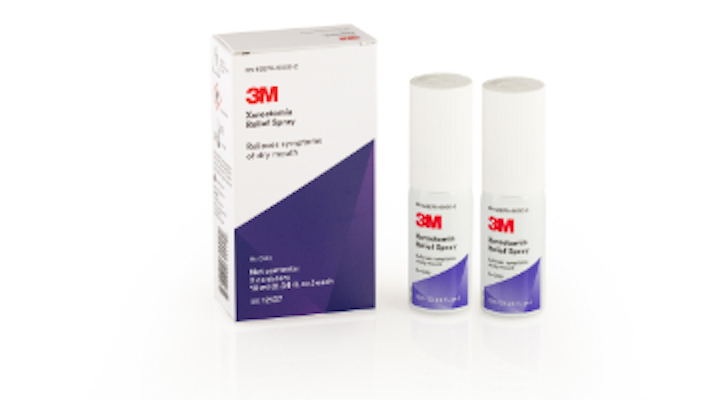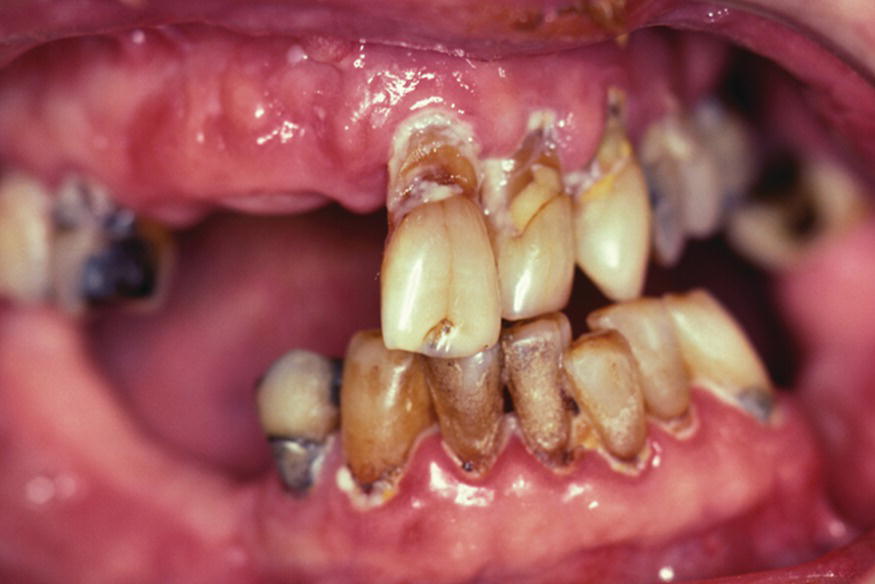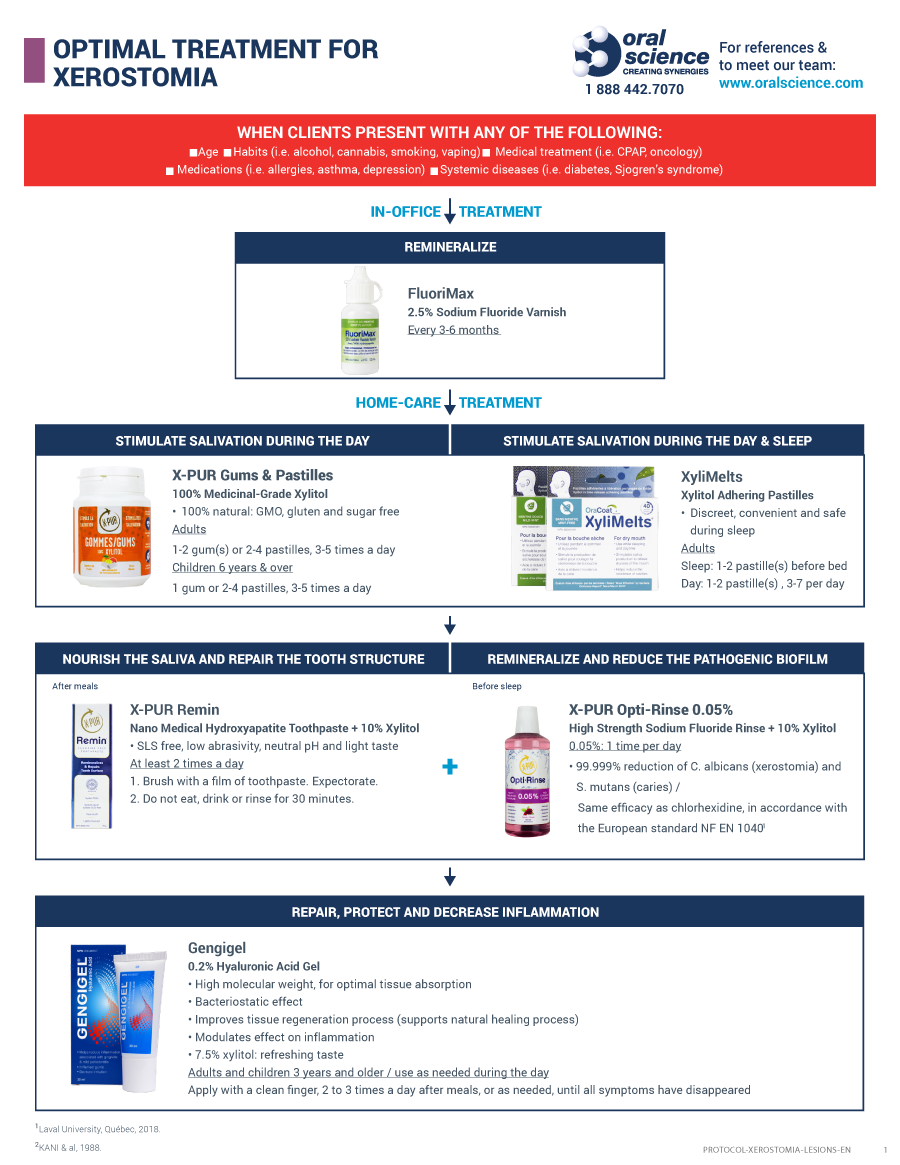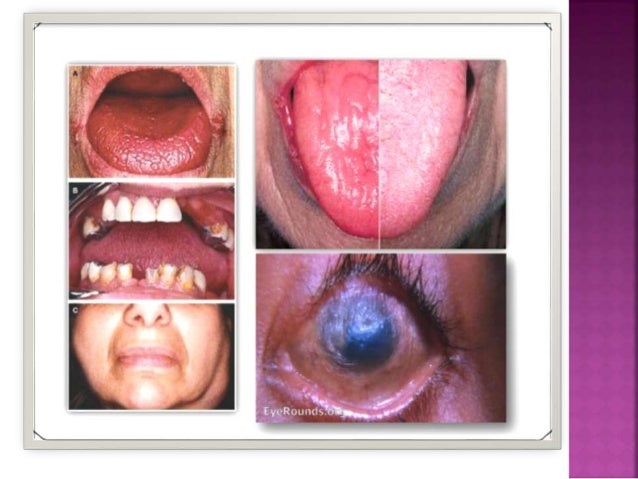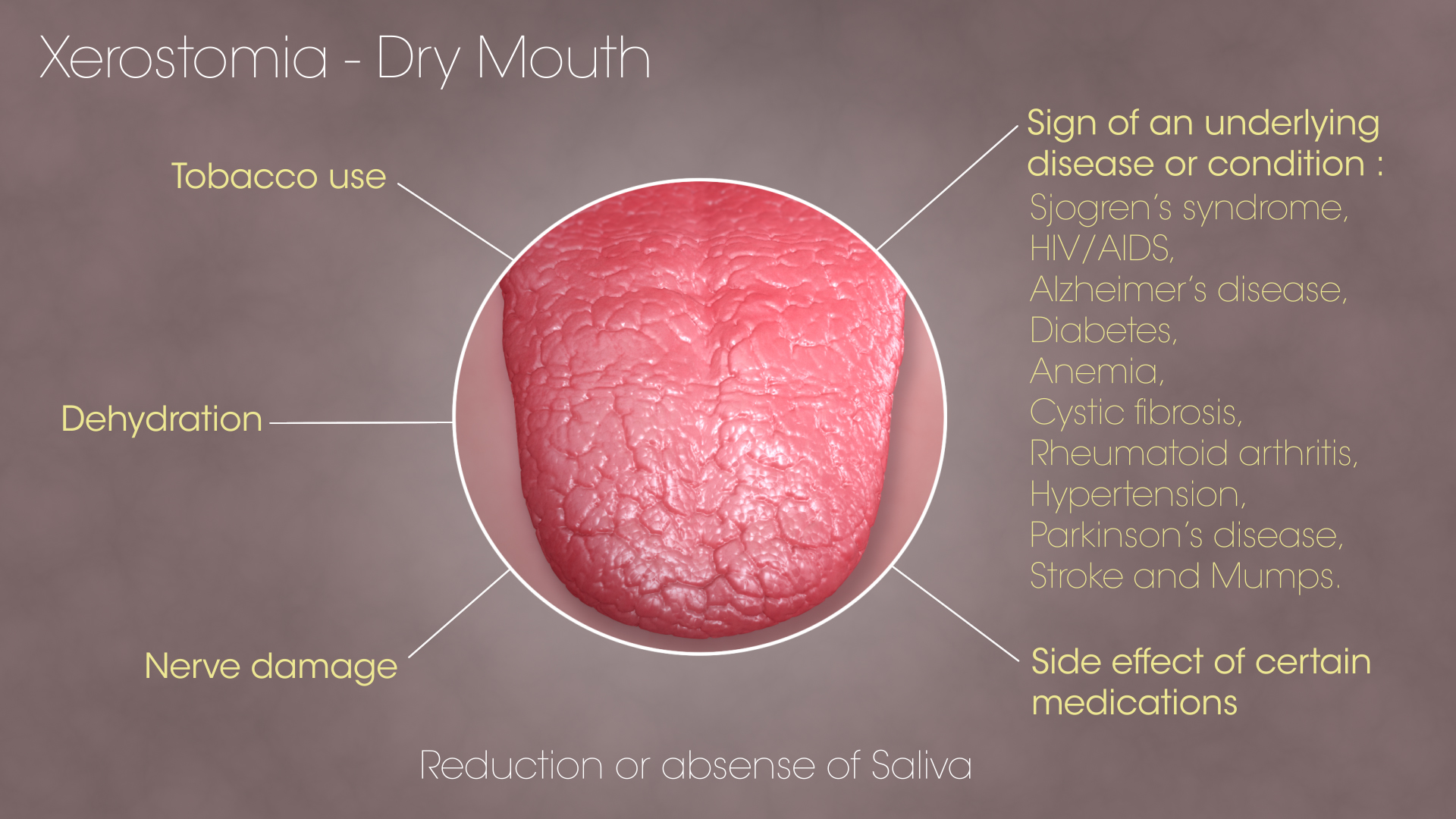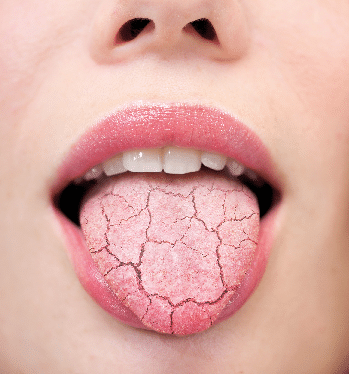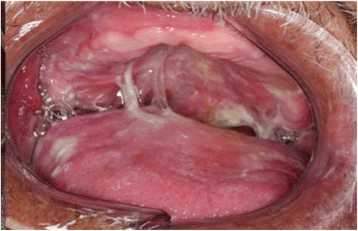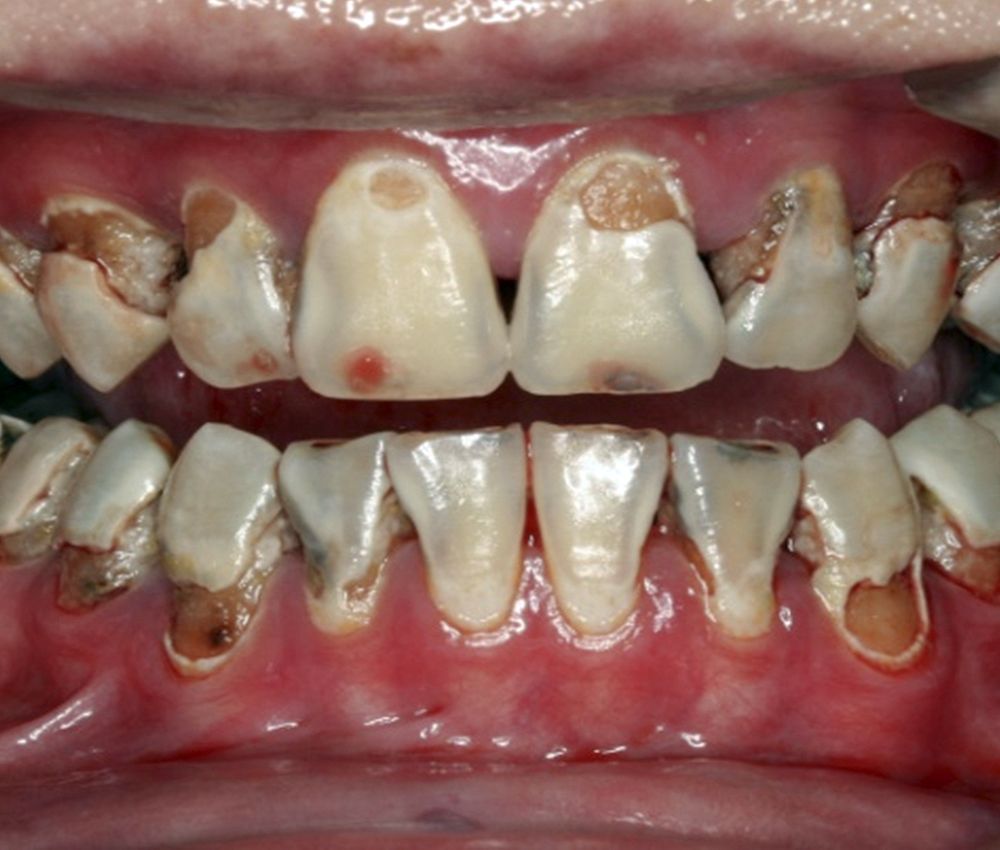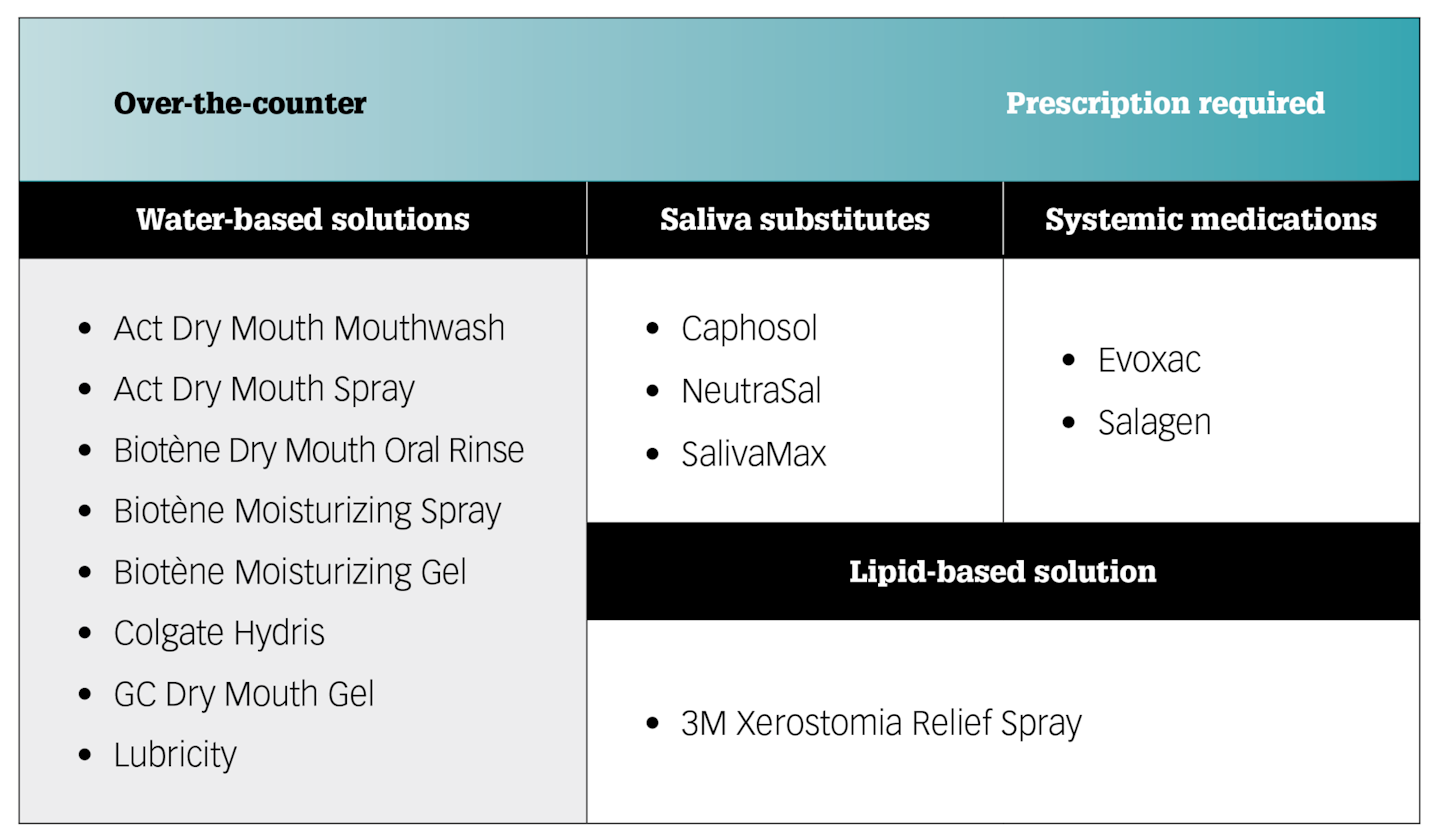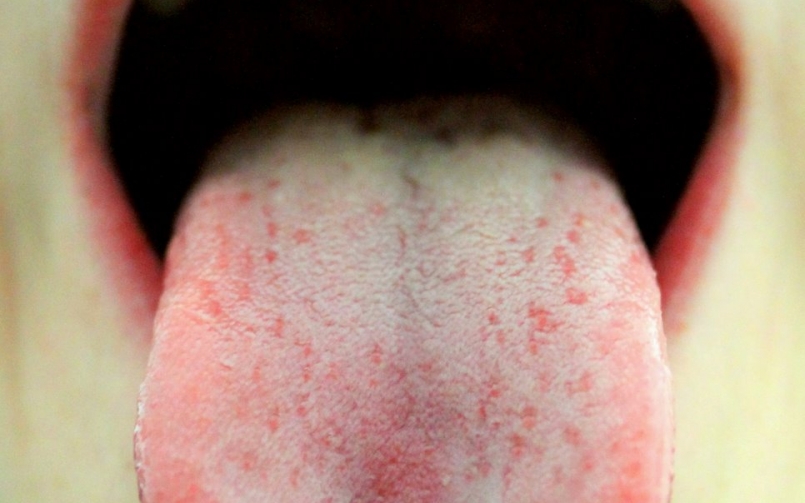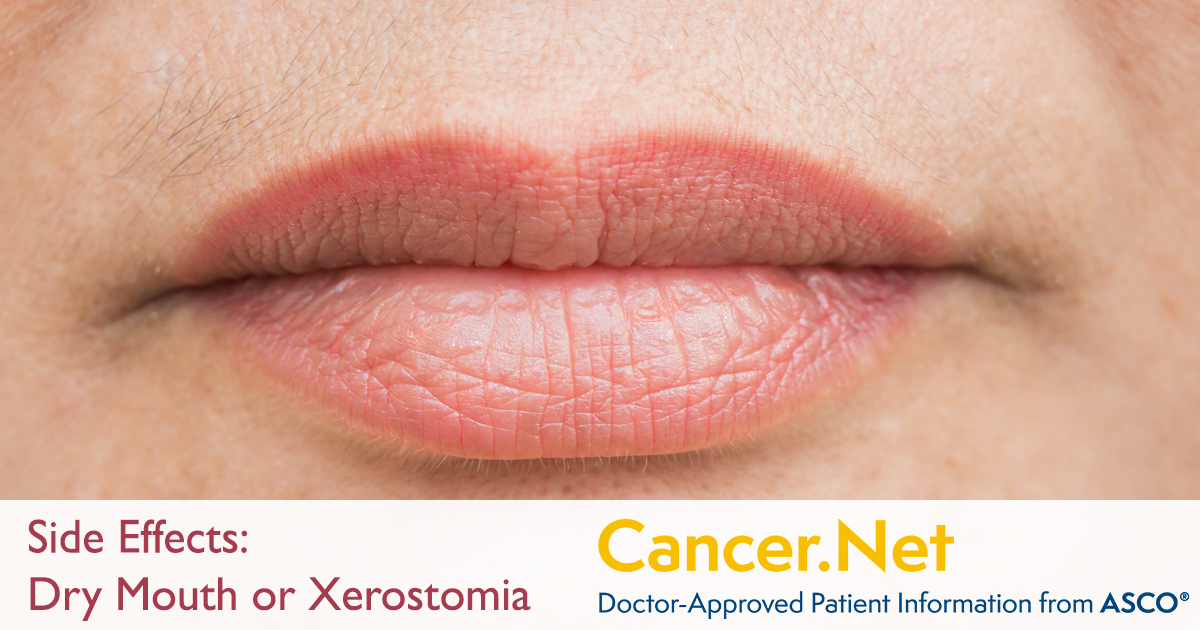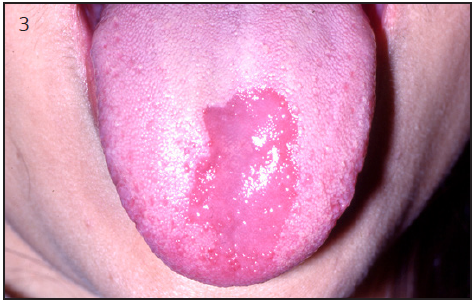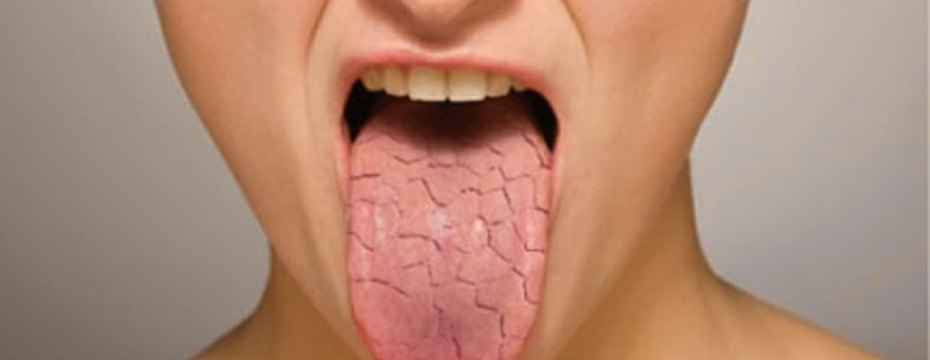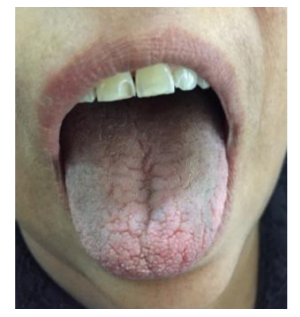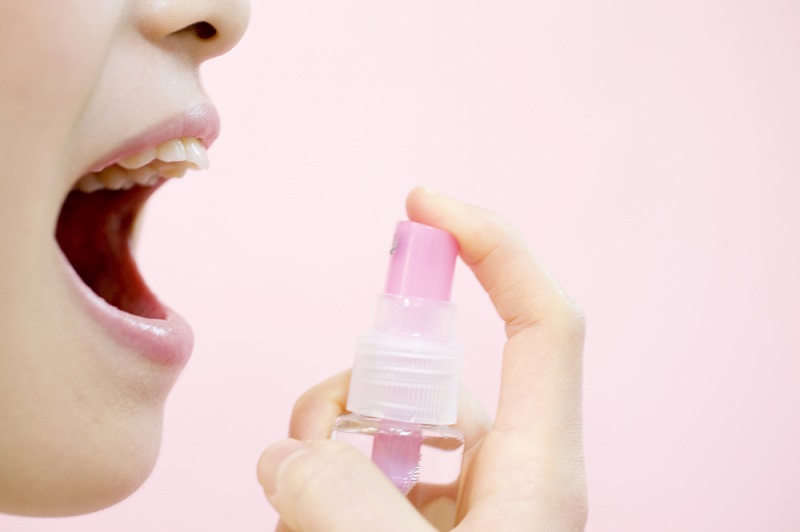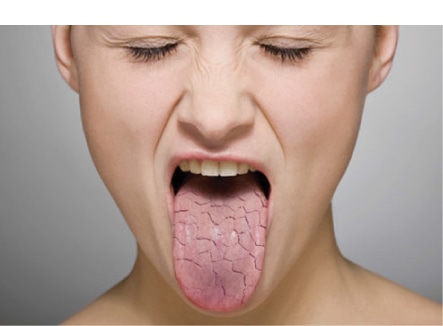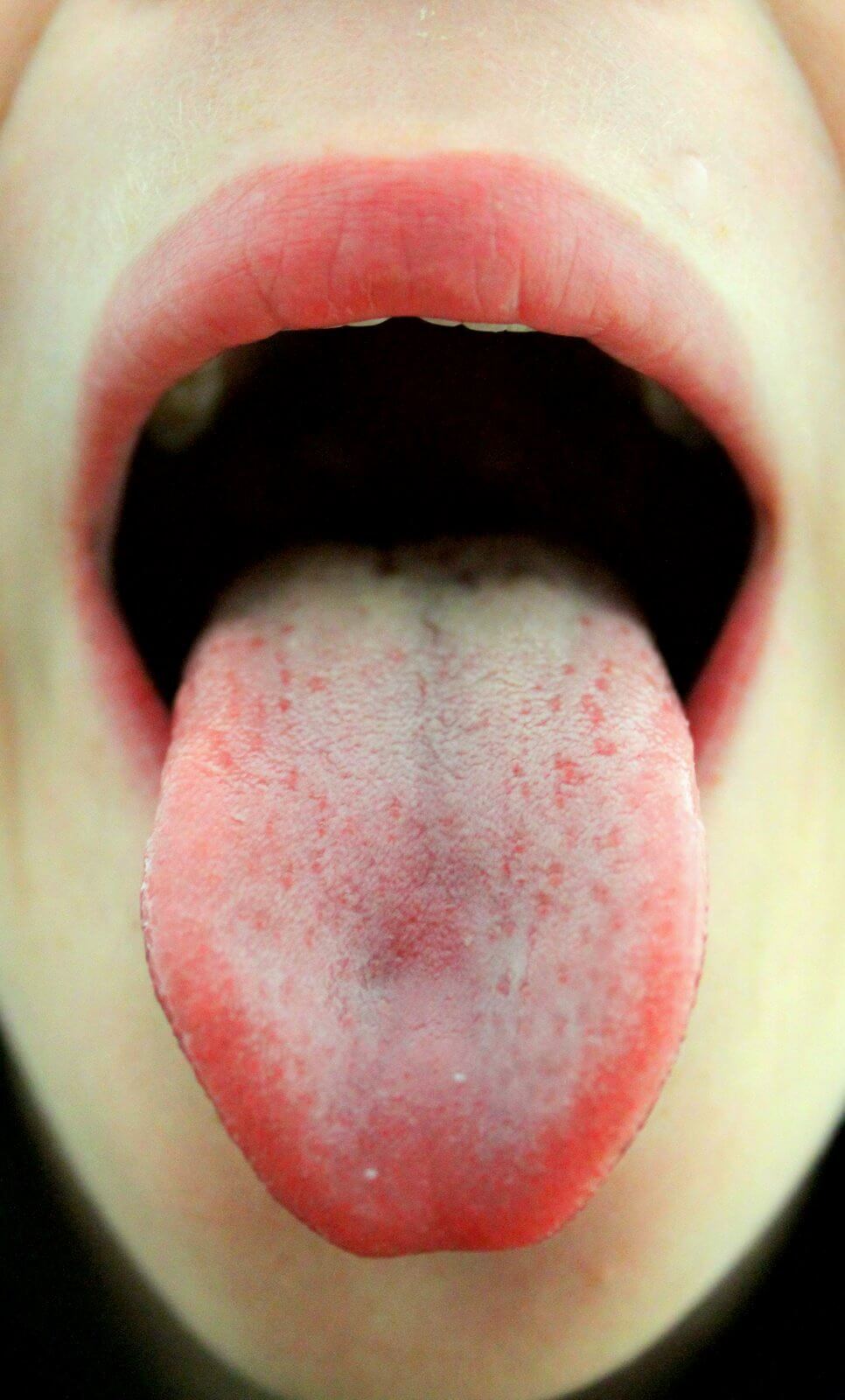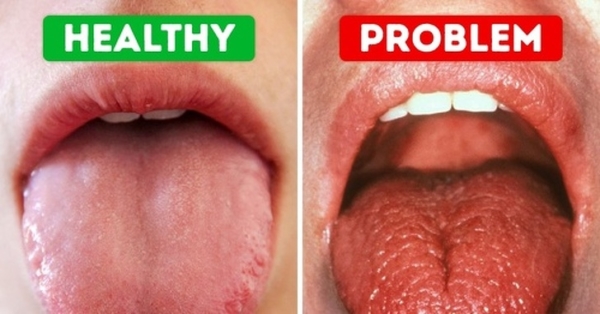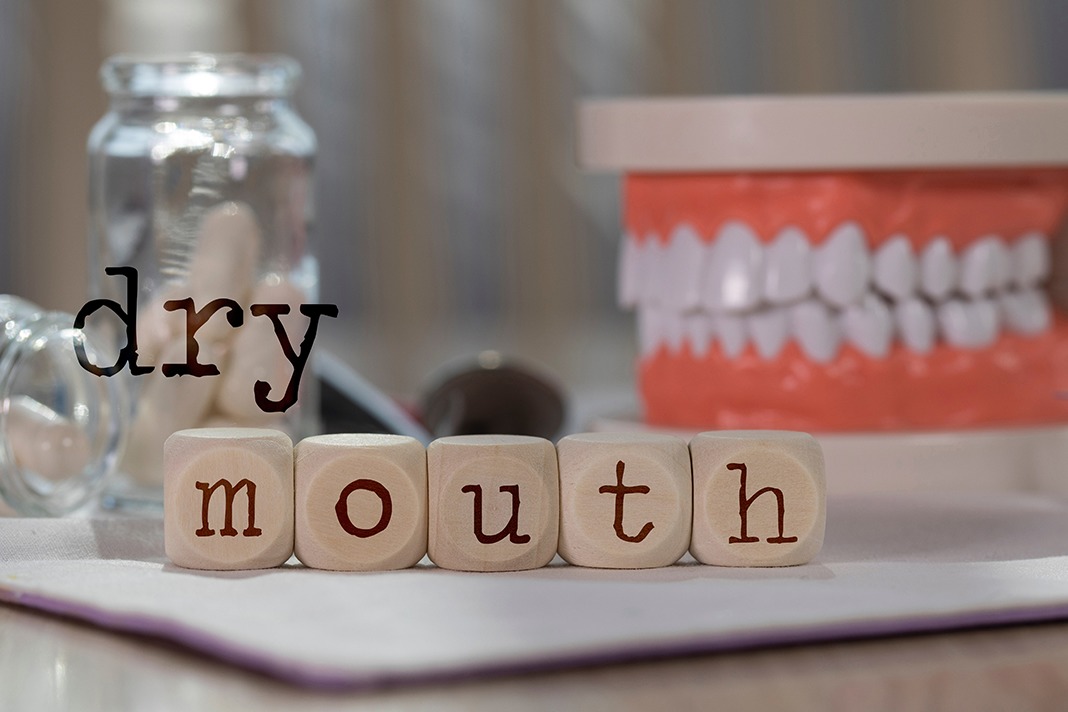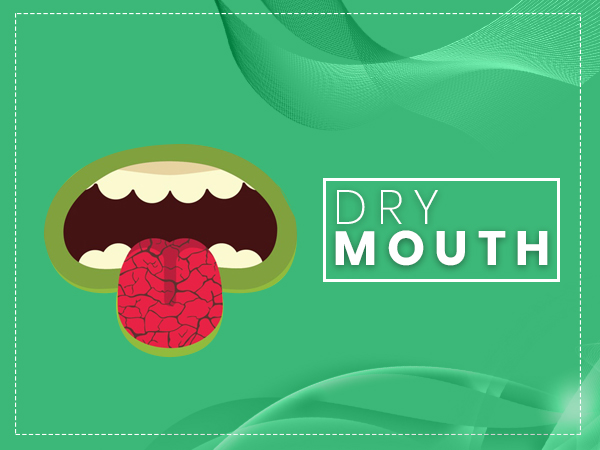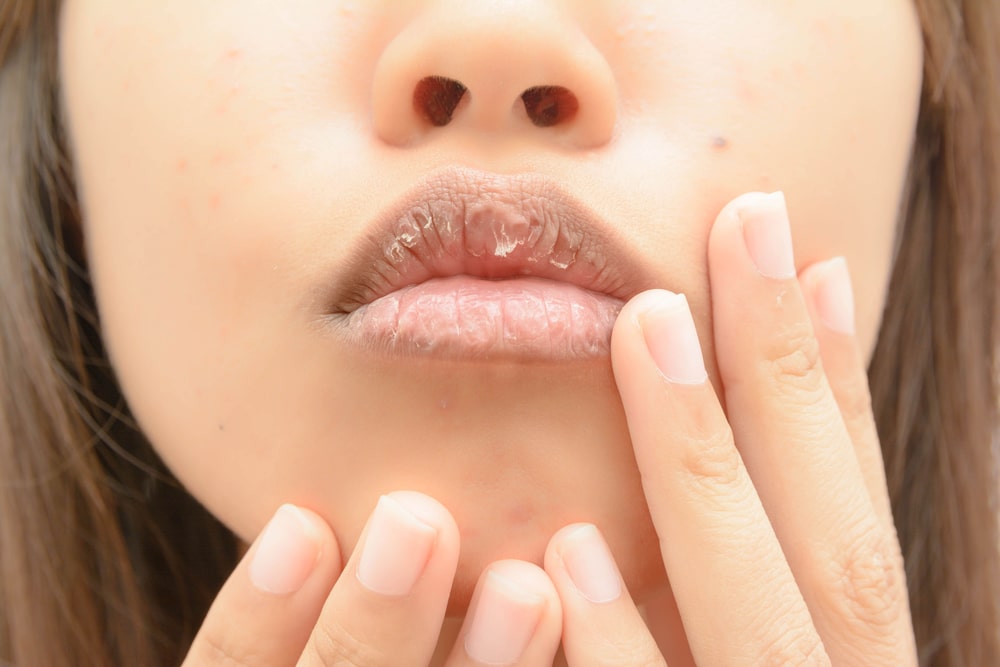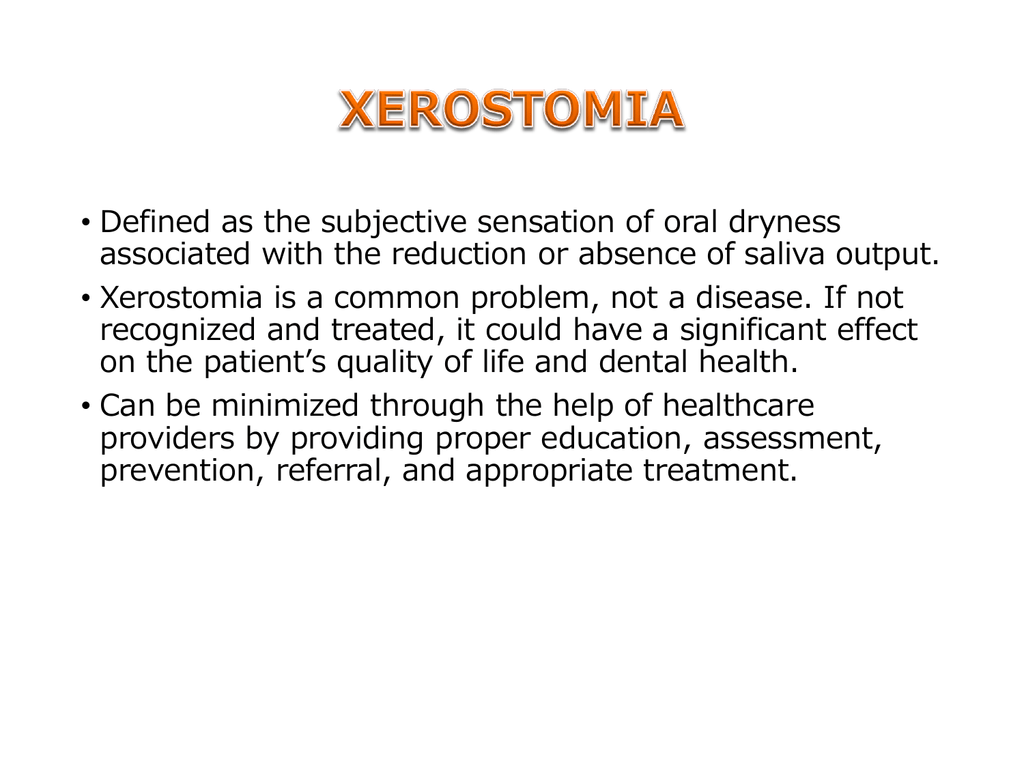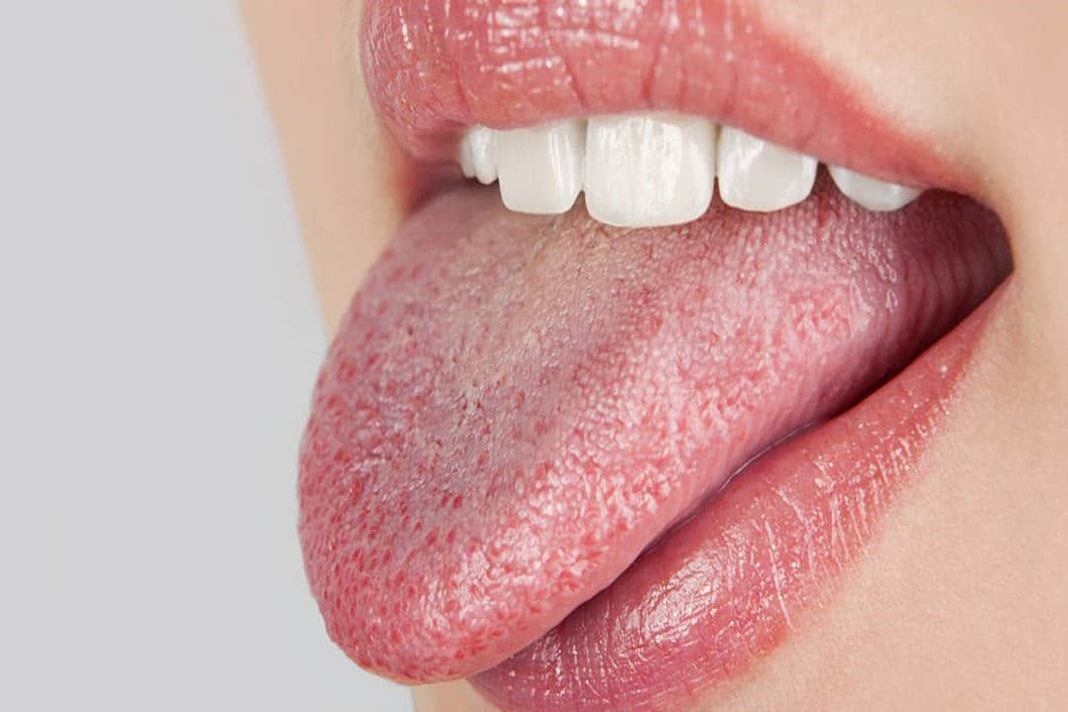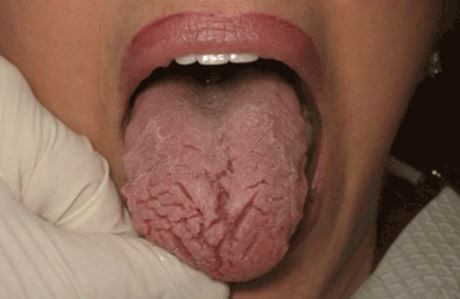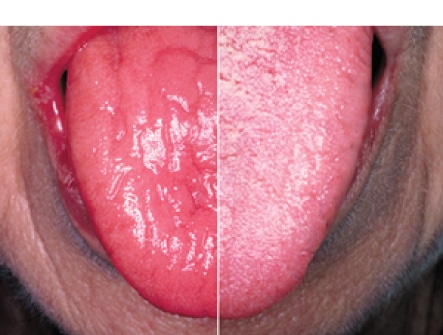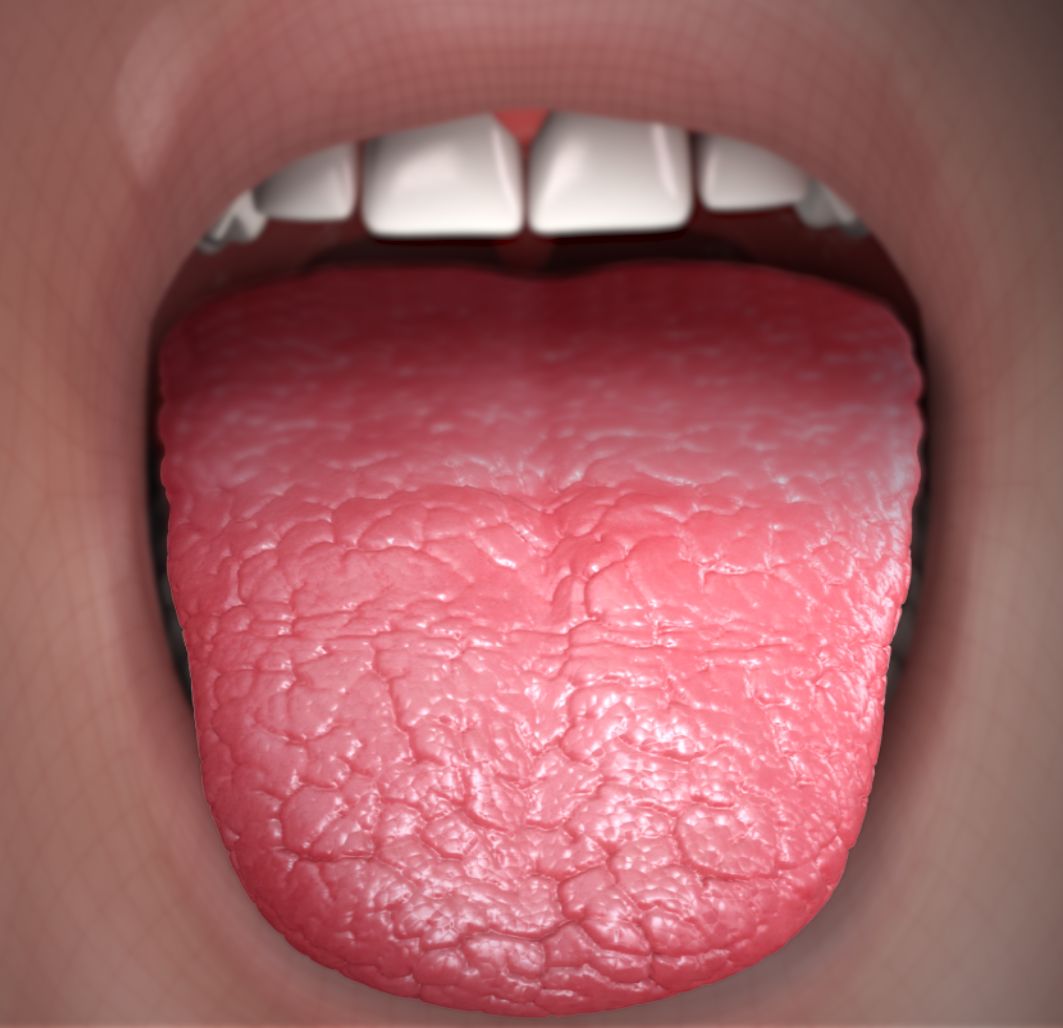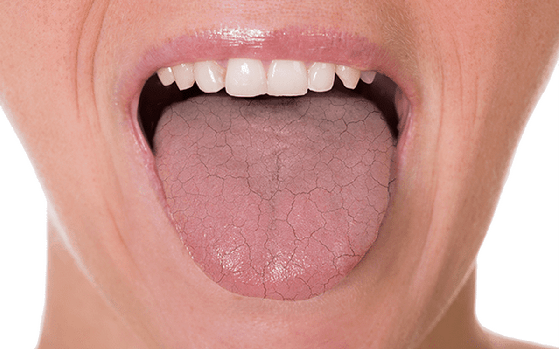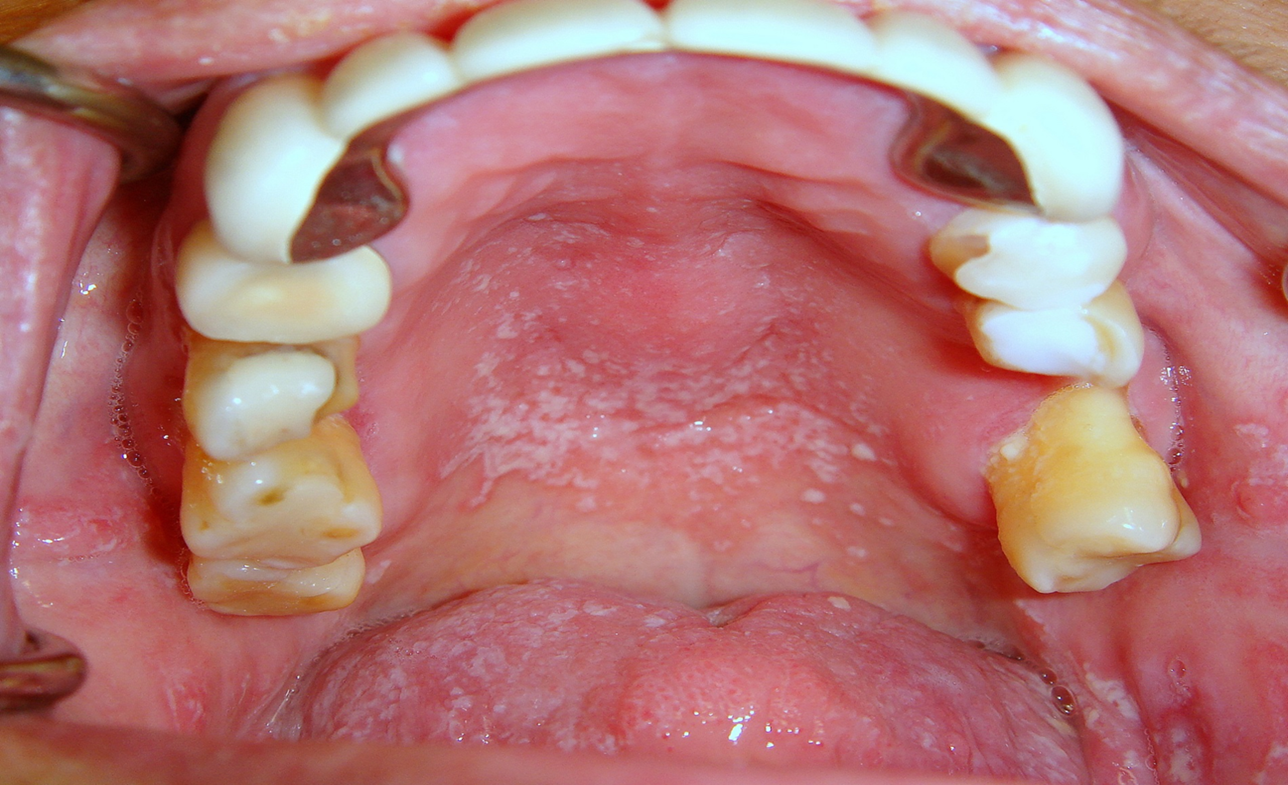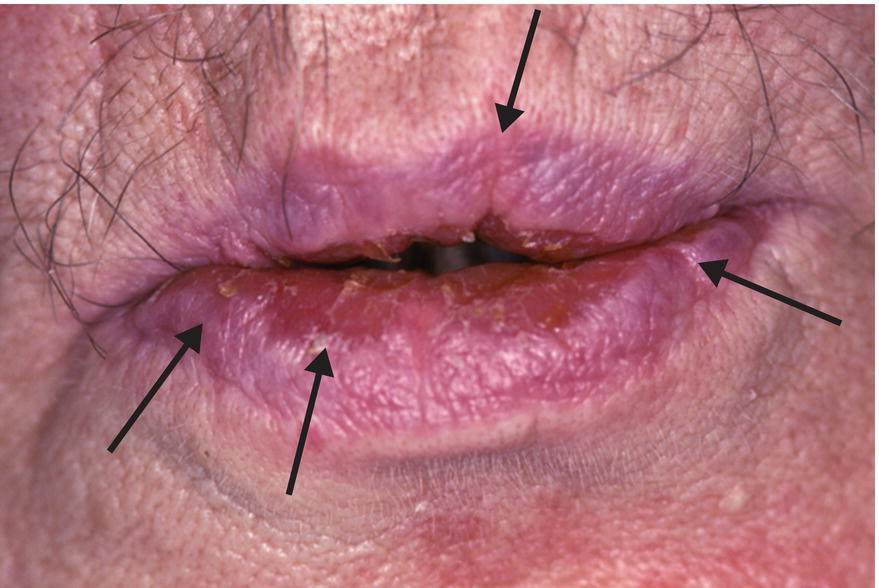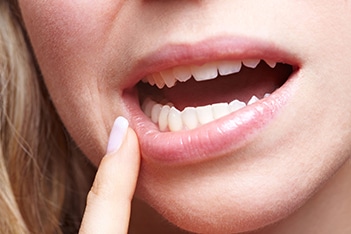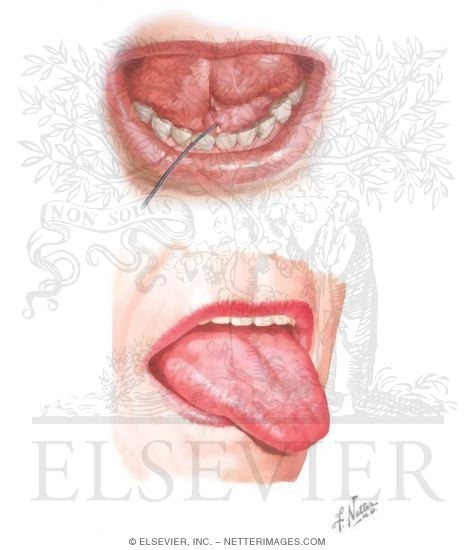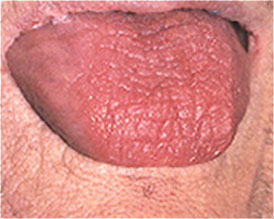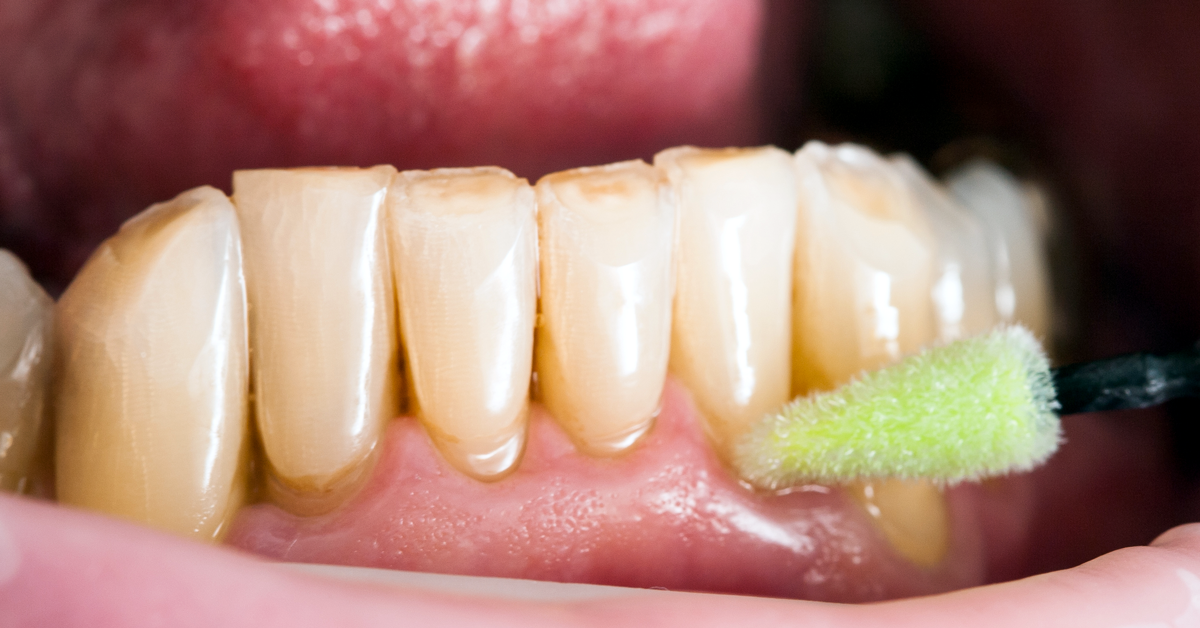Xerostomia
The term is derived from the greek words xhros xeros meaning dry and stoma stoma meaning moutha drug or substance that increases the rate of salivary flow is termed a sialogogue.

Xerostomia. See how were providing safe in person care and virtual visits. Xerostomia is the subjective sensation of dry mouth which is often but not always associated with hypofunction of the salivary glands. Xerostomia is a common problem. Diagnosis of xerostomia and salivary gland hypofunction is dependent upon a careful and detailed history and thorough oral examination.
Dry mouth can be a symptom or side effect of other conditions and. Dry mouth is often due to the side effect of certain medications or aging issues or as a result of radiation therapy for cancer. It can also cause. It may or may not be associated with decreased salivary gland function.
This condition causes a parched or dry feeling in your mouth. Dry mouth is also known as xerostomia. Dry mouth xerostomia refers to a condition in which the salivary glands in your mouth dont make enough saliva to keep your mouth wet. Xerostomia is not a disease but it may be a symptom of various medical conditions a side effect of a radiation to the head and neck or a side effect of a wide variety of medications.
How common is dry mouth. Dry mouth or xerostomia zeer o stoe me uh refers to a condition in which the salivary glands in your mouth dont make enough saliva to keep your mouth wet. It occurs when salivary glands in your mouth dont produce enough saliva. It is a frequent side effect of medication which may improve with a new prescription or an adjustment of dosage.
Xerostomia the subjective complaint of dry mouth and hyposalivation remain a significant burden for many individuals. Review the latest covid 19 resources and research advancements. Extreme dry mouth and salivary gland dysfunction can produce significant anxiety permanent mouth and throat disorders and can impair a persons quality of life. Dry mouth is also called xerostomia.
Xerostomia can make it difficult to speak eat and digest food and can lead to malnutrition.
